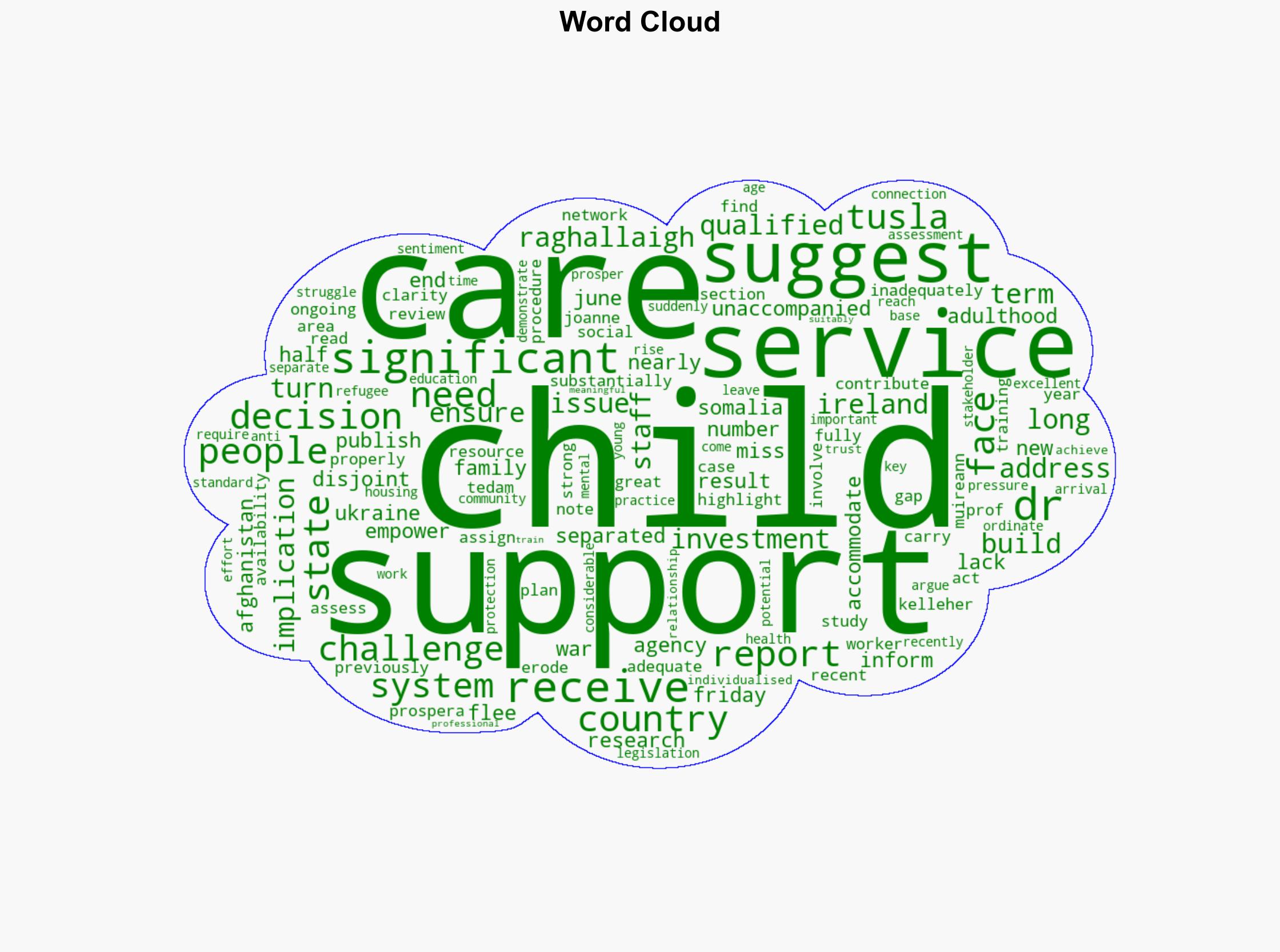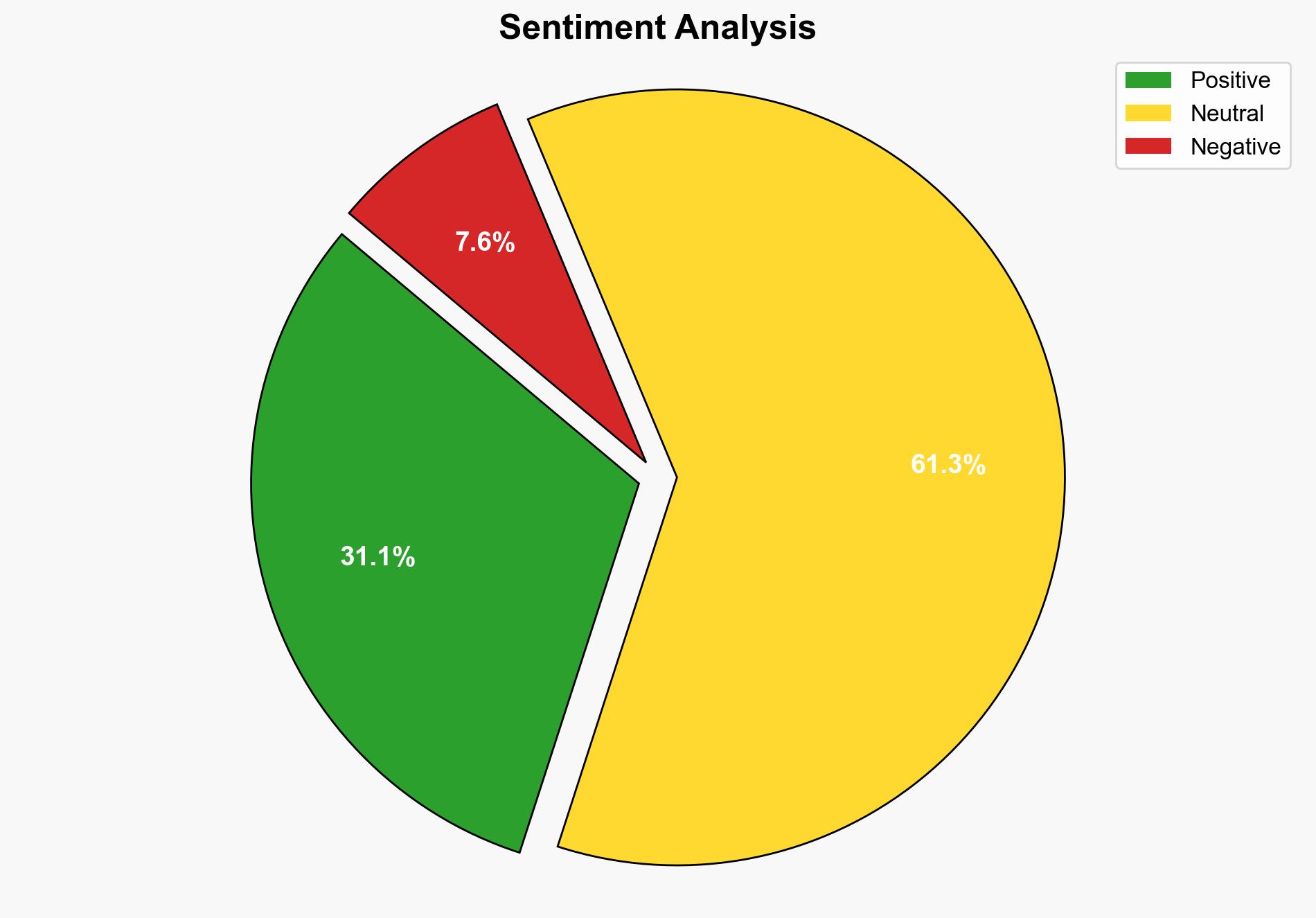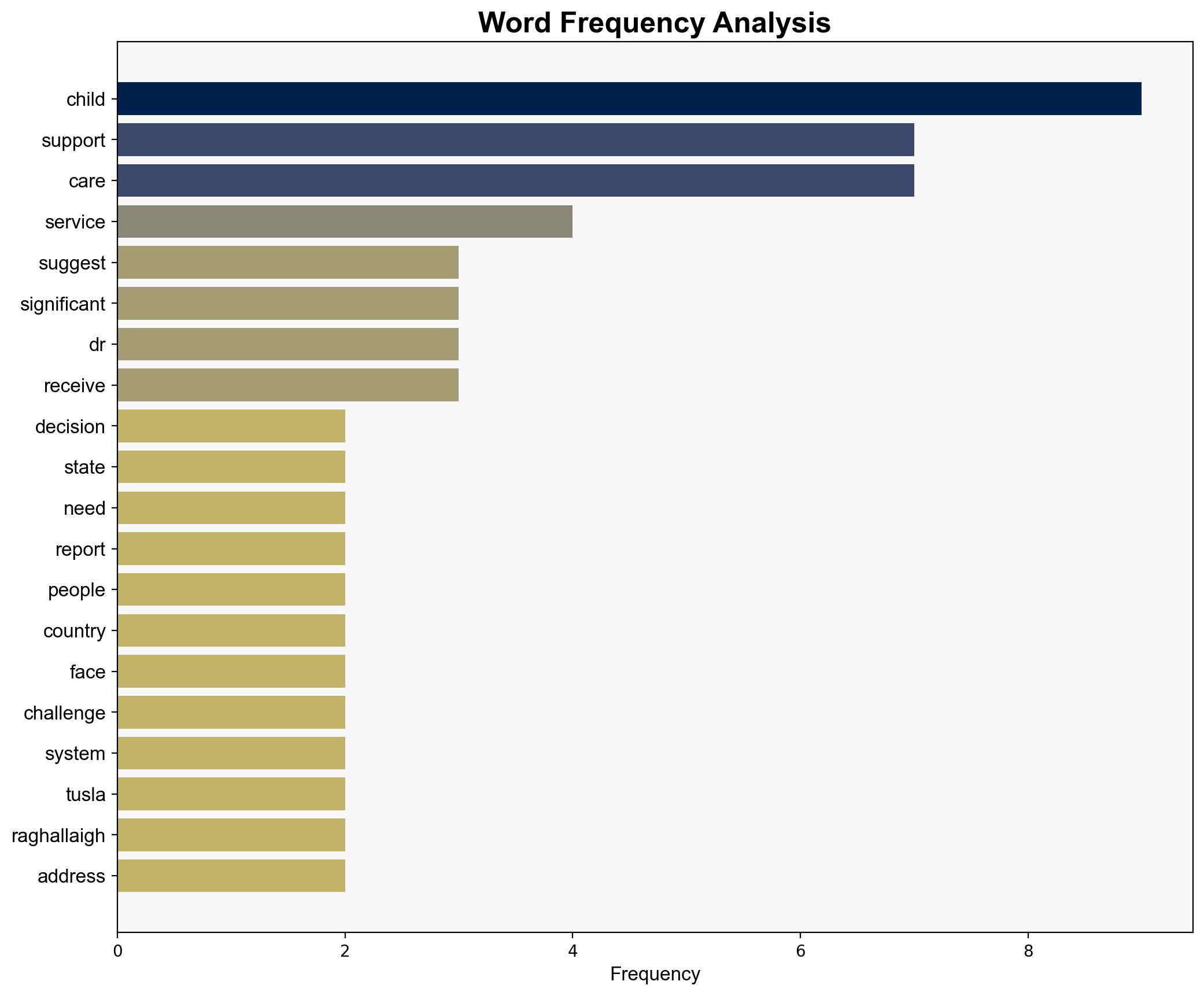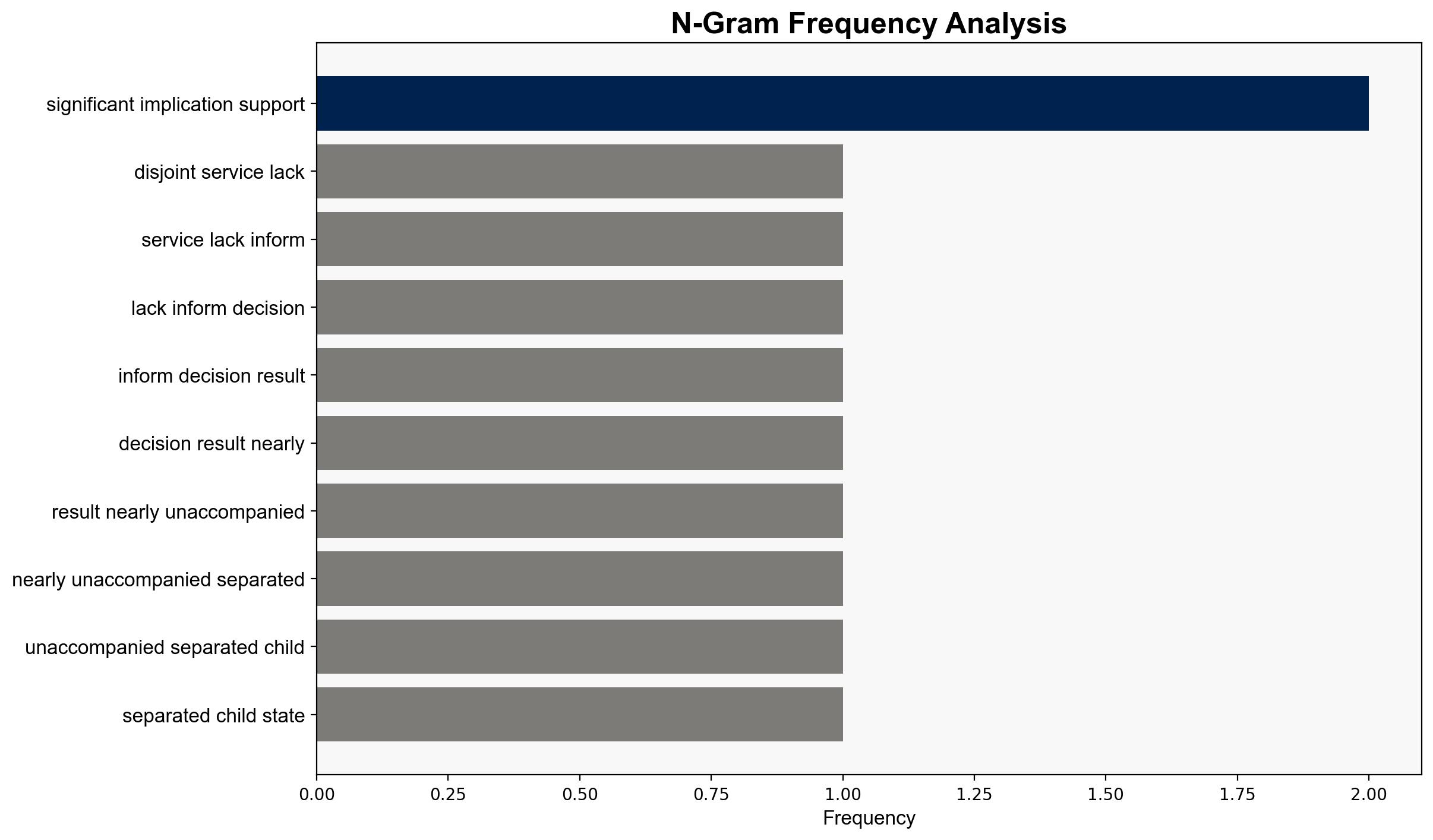Services for separated children seeking international protection overstretched – The Irish Times
Published on: 2025-10-10
Intelligence Report: Services for separated children seeking international protection overstretched – The Irish Times
1. BLUF (Bottom Line Up Front)
The current system for supporting separated children seeking international protection in Ireland is under significant strain, with resource limitations impacting service delivery. The most supported hypothesis suggests that without immediate intervention and resource allocation, the situation will deteriorate, potentially leading to long-term negative outcomes for the children involved. Confidence level: Moderate. Recommended action: Prioritize resource allocation and strategic planning to enhance service delivery and support systems.
2. Competing Hypotheses
1. **Hypothesis A**: The primary issue is a lack of resources and coordination within the existing framework, which can be resolved through increased funding and better management.
2. **Hypothesis B**: The challenges are systemic and require comprehensive reform beyond resource allocation, including changes in policy, training, and community engagement.
Using ACH 2.0, Hypothesis A is better supported by the evidence, which highlights resource inadequacies and the erosion of staff networks as primary concerns. However, Hypothesis B cannot be dismissed, as it addresses deeper systemic issues that may not be resolved solely through increased funding.
3. Key Assumptions and Red Flags
– **Assumptions**: It is assumed that increased resources will directly translate into improved service delivery (Hypothesis A). Hypothesis B assumes systemic reform is feasible within current political and social constraints.
– **Red Flags**: Lack of detailed data on the effectiveness of current interventions and potential biases in the report’s focus on resource inadequacies without exploring systemic issues.
– **Blind Spots**: Potential underestimation of the impact of anti-refugee sentiment and its influence on policy and community support.
4. Implications and Strategic Risks
– **Patterns**: Increasing numbers of separated children requiring support, coupled with diminishing resources, suggest a growing crisis.
– **Cascading Threats**: Failure to address these issues could lead to increased social tensions, mental health crises among affected children, and long-term societal costs.
– **Potential Escalation**: Continued neglect may result in international scrutiny and potential reputational damage for Ireland.
5. Recommendations and Outlook
- **Immediate Action**: Allocate additional resources to Tusla and related agencies to address current service gaps.
- **Strategic Planning**: Develop a comprehensive reform plan focusing on policy, training, and community engagement.
- **Scenario-Based Projections**:
– **Best Case**: Enhanced resources and systemic reforms lead to improved outcomes for children and reduced social tensions.
– **Worst Case**: Continued inaction results in a humanitarian crisis and increased international criticism.
– **Most Likely**: Incremental improvements with ongoing challenges due to systemic issues.
6. Key Individuals and Entities
– Dr. Muireann Raghallaigh
– Dr. Joanne Kelleher
– Prof. Prospera Tedam
– Tusla (Child and Family Agency)
7. Thematic Tags
national security threats, social welfare, child protection, immigration policy





